A year-long bike ride changed my life: 11 transformative journeys by bike
Having experienced her own epiphany by bike, Isobel Duxfield went in search of more inspirational stories of pedal power
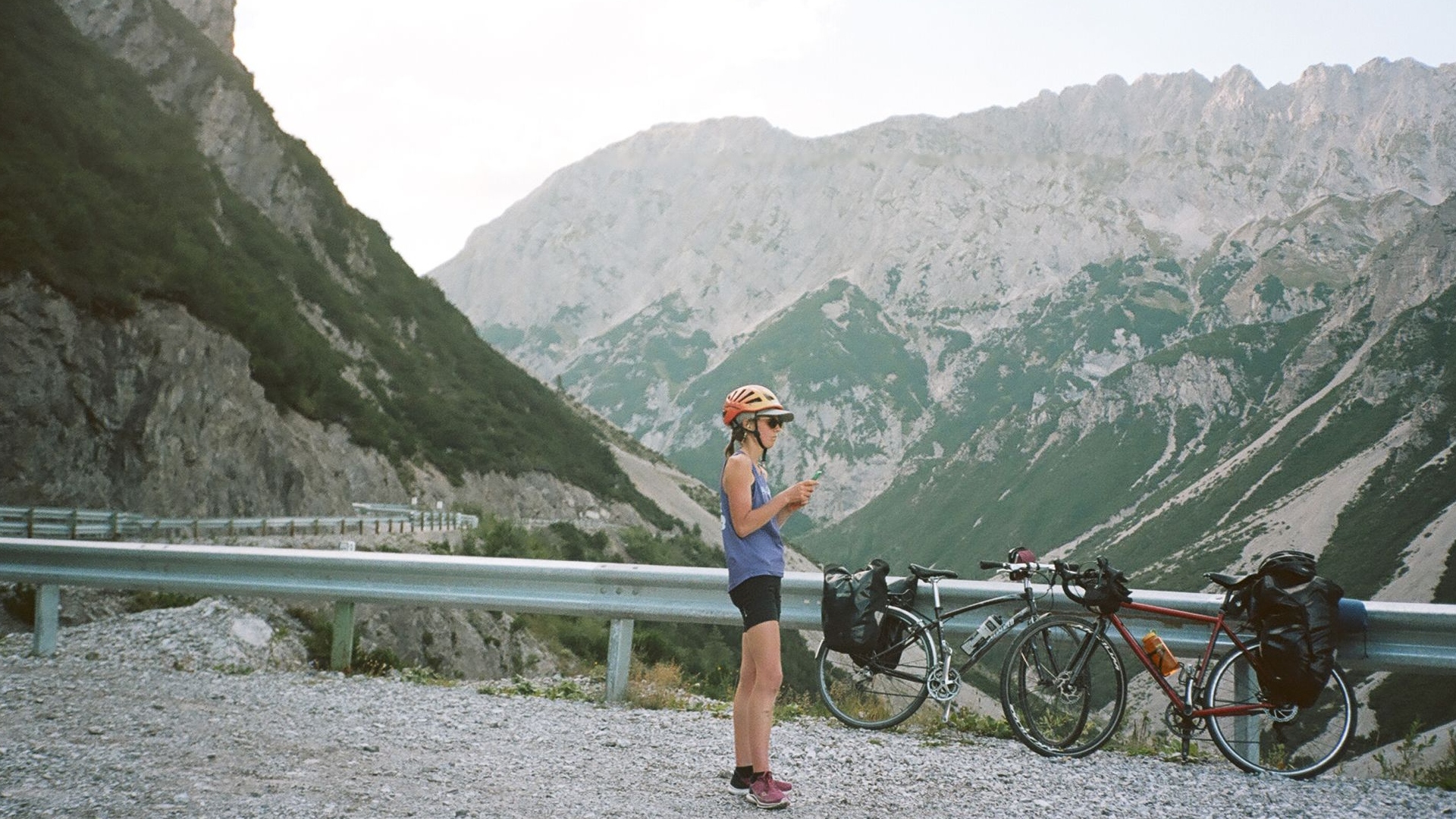
Last year I quit my job, moved out of my house, sold my belongings and embarked on a global bike tour. The experience changed who I am as a person. I have met incredible people, seen awe-inspiring landscapes, and pitched my tent under the clearest skies imaginable. I have also encountered terrifying wild animals, weather conditions which have tested the limits of my resolve and - in hindsight, foolishly - pedalled on some of the world’s most dangerous highways.
My life-changing ride took a year, and saw me traverse countries all over the world. But, you don’t have to go so far to have an epiphany on two wheels. Life-changing rides could involve pedalling home from a first date, that first cycle commute that made you realise that pedal power was faster than travelling via SUV, or an e-bike ride that proved your cycling days were not over.
With conditions in the Northern Hemisphere at their least motivating, I spoke to 11 riders to bring you inspirational tales of those life-changing rides, in the hope of inspiring you to plan your own.

Agathe Daudibon and family rode four very different bikes
Agathe Daudibon is the EuroVelo and Cycling Tourism Director at the European Cyclists Federation, in France. She remembers a special family adventure, featuring three very different bikes.
I could pick any of my cycle trips in Europe, Morocco or Patagonia, but it is really the first 3-day cycling trip with my family which sticks with me. My brother on his BMX, my parents on rented e-bikes and me on a folding bike - we were quite the diverse group!
We cycled along the Normandy D-Day beaches from Arromanches to Port-en-Bessin and back, on EuroVelo 4-La Vélomaritime in France. What struck me the most was when I heard my mother telling the story to a colleague of hers: she was so proud of this trip.
Cycling tourism is for everyone, as long as there is an understanding of the needs of the less experienced riders, and, a step-by-step approach gives confidence and joy. My mother now has an e-bike that she is using regularly for leisure and even commuting trips.
Get The Leadout Newsletter
The latest race content, interviews, features, reviews and expert buying guides, direct to your inbox!
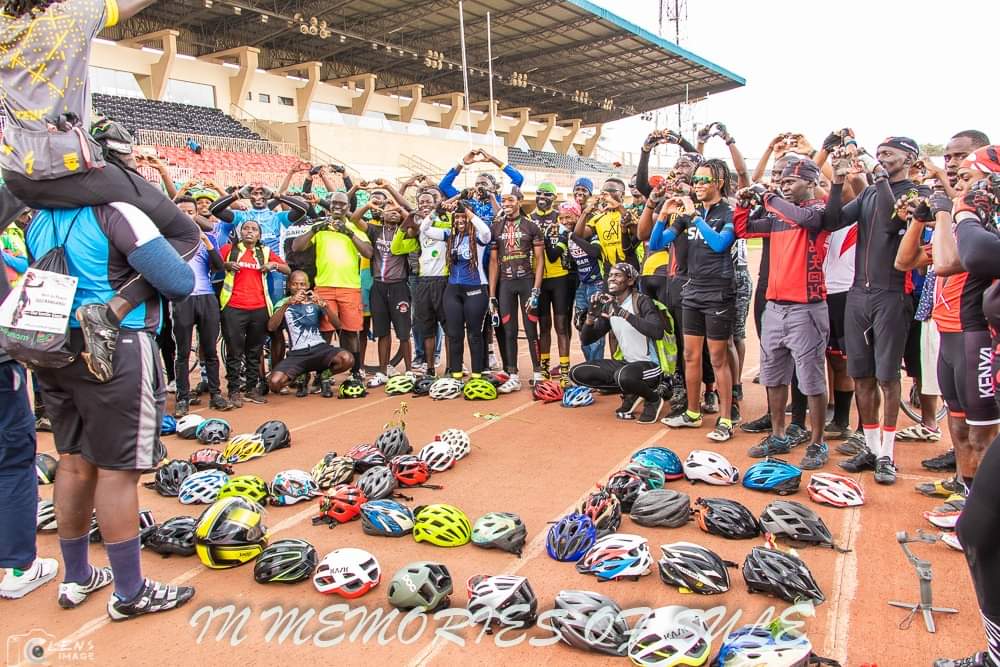
The universe spoke to Cyprine Odada on a memorial ride
Cyprine Odada is the Executive Director of Kenya’s Critical Mass Nairobi, Odada recalls a memorial ride for Suleiman Kangangi
The ride that changed my life was the memorial ride we organised for the late Suleiman Kangangi, a Kenyan UCI cyclist, killed in a high speed crash while riding in a gravel race. It was the most painful ride I have ever led.
Sule was Kenya's champion, our hope in cycling, and we had to give him a befitting sendoff. At the time, I was on the verge of walking away from Critical Mass Nairobi [a non-profit organization aiming to transform cities], questioning if it was all worth it. But, with cyclists lining the streets, lifting their bikes in honour of Sule, the universe has a way of speaking. It shaped my understanding of resilience and reaffirmed my belief in the power of community.
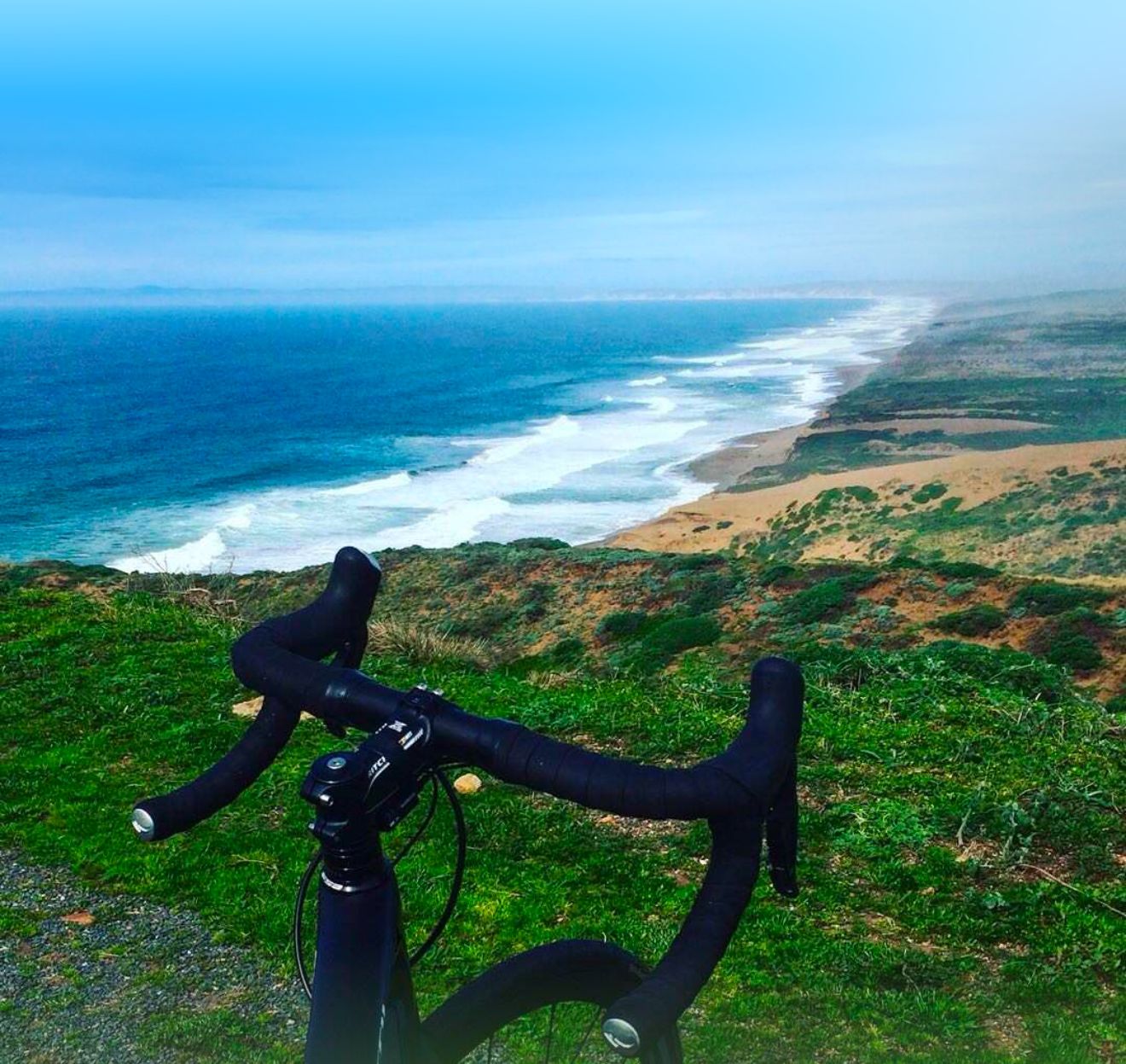
Kai Alcharabi's first 100-mile ride in a day
Architect (USA) Kai Alcharabi now lives in America, originally from Syria, he recalls his first 100-mile ride
Riding has always been associated with important moments in my life, be it an everyday work decision or life-changing moment, like moving across the globe from Syria to America.
But there is one particular ride that is very dear to my heart. On July 4th 2017, I completed my first 100-mile ride in a single day. This date also marked a decade since I left my home in Syria as an immigrant.
I remember being mentally prepared for that day. I had no planned route and no idea how far I would go; all I wanted was to be alone with my thoughts on my bike. It remains one of the most beautiful days of my life.
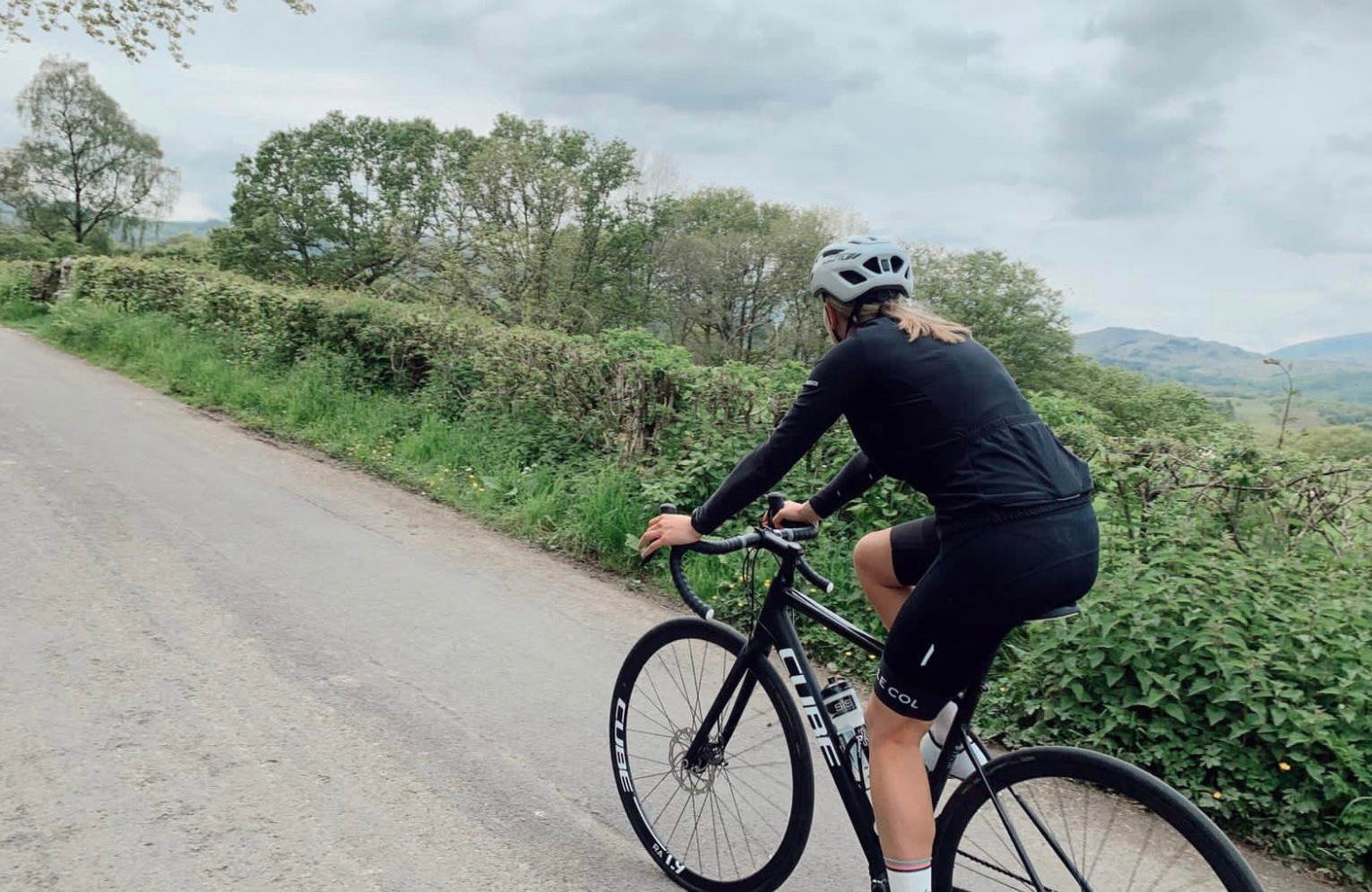
Bronywn Visser conquered her nemesis
A UK-based marketing manager, Bronwyn Visser’s pivotal ride saw her conquer a 2.5kilometre climb in the UK’s Lake District
The first time I conquered Blea Tarn Hill without stopping is a memory that shaped my love for cycling and my belief in perseverance. With its daunting 25% gradient, Blea Tarn became my personal challenge, a hill that seemed to beat me every time, no matter how many miles I had under my belt or how many “tougher” hills I had ridden. Each time I’d try, my brother would be waiting at the top, while I would stop halfway up, defeated again.
But one warm, sunny evening, exhausted from a long day at work, I felt a determination that “today’s the day.” Alone, on what was about my tenth attempt, I finally made it to the top without stopping, beating my long-standing mental block. I sang all the way home, feeling not only like I’d conquered a hill, but also like I’d unlocked the confidence to face any challenge that life might throw at me.

Tyler Diedrick soaked up the culture
Global Development Coordinator at Warmshowers - an app that helps travelling cyclists find accommodation - Tyler Diedrick calls upon atrip through native history and culture
I am of Indigenous Ojibwe heritage and have always been intrigued by native history and cultures. I chose to retrace the Potawatomi Trail of Death - the Potawatomi being a sister tribe of the Ojibwe - via the Council of Three Fires. The Trail of Death was a horrible, forced relocation march of the Potawatomi that occurred in the fall of 1838 from Twin Lakes, into Osawatomie, KS. Over fourty tribal members died on the 61-day, 660-mile journey.
Retracing the route brought out many emotions I'd never experienced before. Riding through farmland and western settlements that are what pushed the Potawatomi out of their homeland in the first place was powerful. Riding my bike on roads and railroad trails that are the result of white expansion was humbling and made me feel privileged.
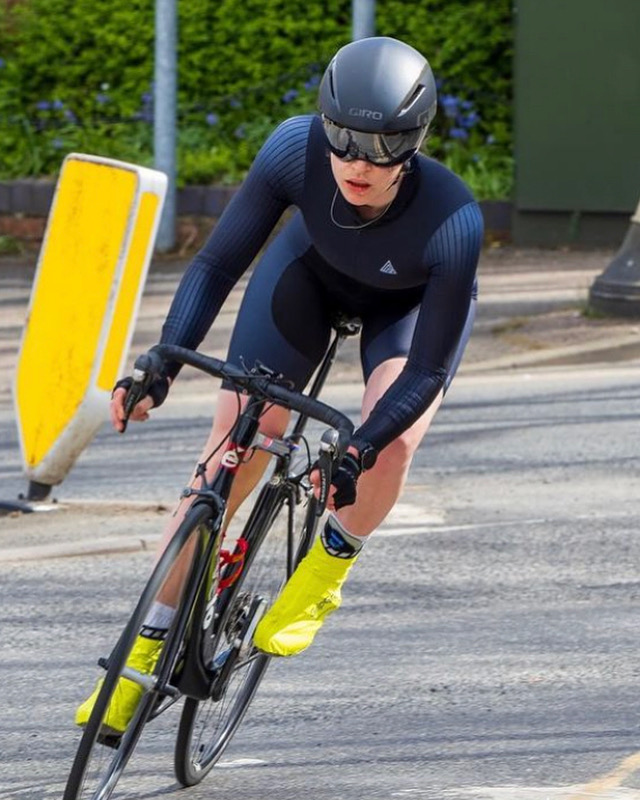
Elisabeth Simpson was picked up by Talent ID
After a stroke left her paralysed on one side, Elisabeth Simpson recalls her first experience riding with British Cycling’s Talent ID team
My journey into cycling started from a very young age, as a child I was often on my bike, cycling to school, to the park to see friends, gave me so much freedom.
My journey into para cycling was a tad longer. In 2015 I suffered a perioperative ischemic stroke during surgery to remove a brain tumour. Initially, it left me completely paralysed down the left side of my body. I had to relearn to walk, and re-learn all those vital skills that help us to stay independent.
My first experience of pedalling again was on an adapted recumbent dual bike in Cornwall - it was the first time after my stroke that I felt I could get back to some sort of physical activity.
I then attended a British cycling Talent ID day and to my surprise having never owned or ridden a road bike was selected for the British cycling para talent academy. The first time I went on a borrowed road bike at the Talent ID day I felt free. For the first time I could do something that felt somewhat similar to before my stroke - I could pedal on two wheels.
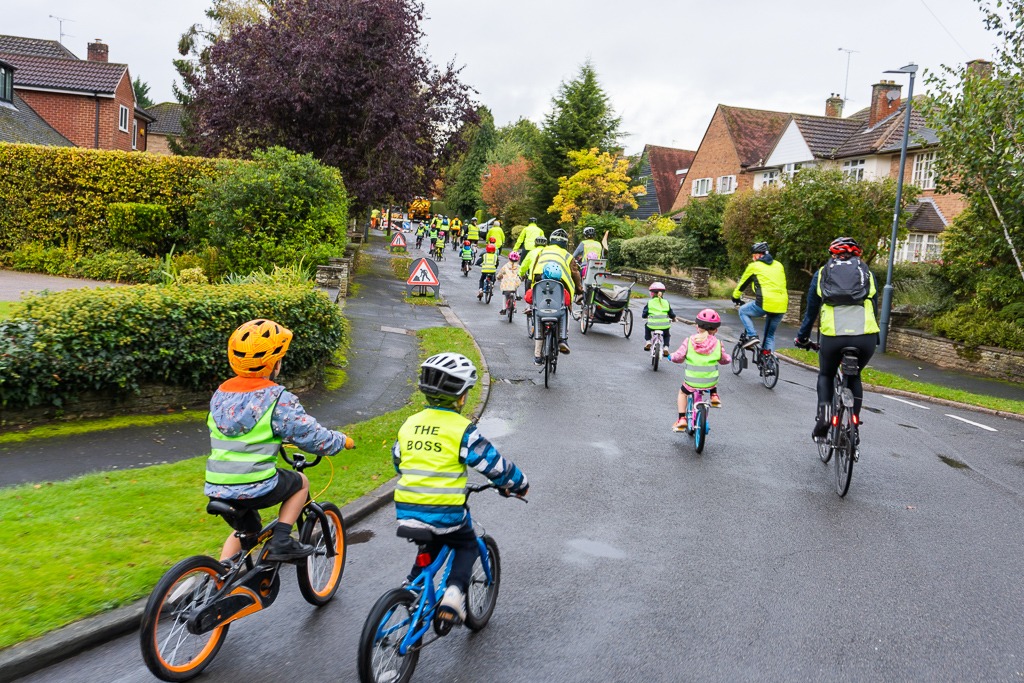
Adam Tranter's children sparked a change
Former West Midlands Walking & Cycling Commissioner (UK), Adam Tranter, tells us of his very different kind of school bus
“Can we cycle to school?", my children asked me.
As a lifelong cyclist and advocate, it was embarrassing to say no. Living near a main road with no cycling infrastructure - in a town where cycling in the park is even banned - I didn't have a choice.
But we weren't going to leave it there. My wife and I set up the area's first school cycle bus which enabled my kids - and the rest of the class - to cycle safely to school. Each child cyclist was flanked by an adult, keeping them safe from traffic.
Of course, it shouldn't have to be like this. The local council heralded it as a positive initiative but I had to explain to them it only existed because of a failure to provide any safe cycling infrastructure suitable for us to use. It was this ride which kicked off my journey to try and change towns and cities across the country to enable more cycling and walking.
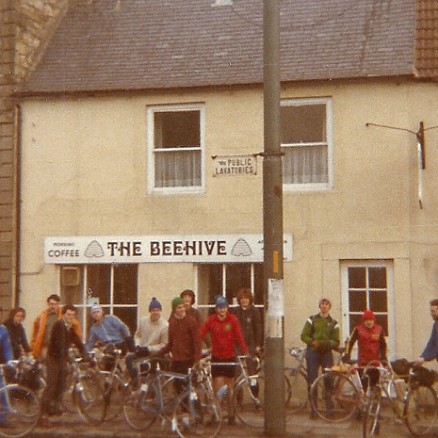
Kevin Mayne will never forget his university ride
Cycling Industries Europe’s Chief Executive Kevin Mayne remembers the inaugural university club ride which sparked his enthusiasm
In January 1981 I turned up at my first Sunday ride with Durham University Cycling Club. I brought one of my battered “hacks", a collection of second-hand parts that created an almost reliable machine and set off to ride about 60 miles around the hills and valleys of the region with the group.
I had a brilliant day and I was ever-present for the next three years. But what I didn't know was that the people I met that day would become friends for life, and together we would turn bike rides into voyages that we still talk about today. Companionship, independence, self-confidence and a spirit of discovery are the human values that were built on those rides, in rain and shine.
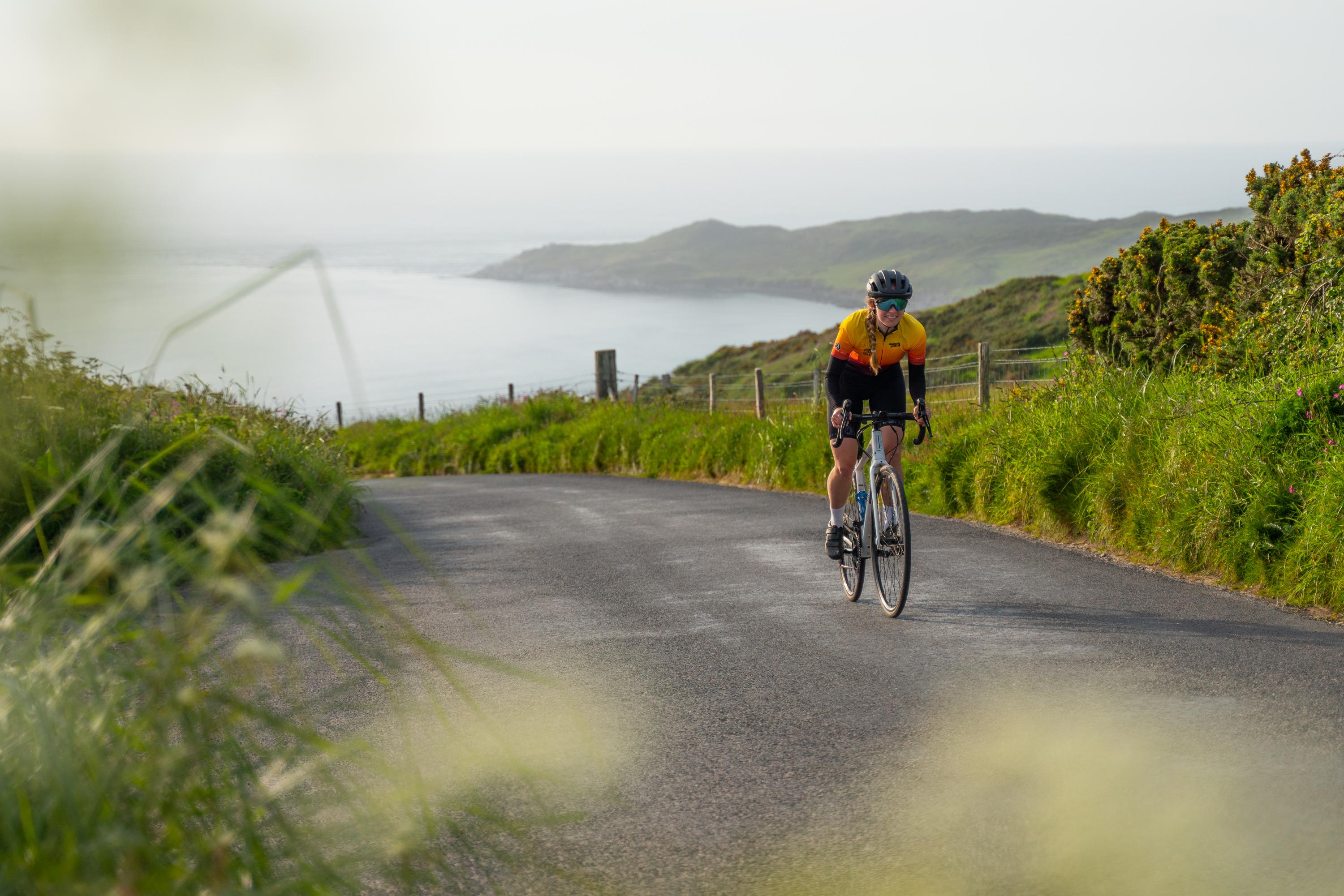
Issy Pritchard's 200-mile ride pushed her to the limit
E-commerce manager at cycling charity Sustrans, and ambassador for the Chase The Sun sportive, Issy Pritchard set herself a 200-mile challenge
In 2022, with little cycling experience, I signed up to the plus 200-mile Chase The Sun (CTS) challenge, which became a transformative journey. ‘Training’ turned into ‘cycling adventures’, using the National Cycle Network to explore much of the UK. Passionate about inspiring women to cycle, this experience pushed me to join Sustrans to support the Network’s maintenance and growth and become a CTS ambassador, offering advice to women seeking a confidence boost. Having done CTS 3 times, it’s been wonderful to witness the steady increase in women on the start line.
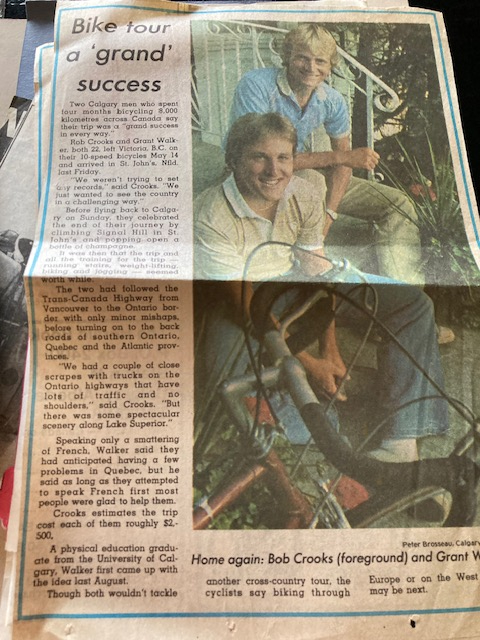
Rob Crooks' ride provided education beyond schooling
Cycling activist and e-bike group leader Rob Crooks remembers a cruise across Canada
In the summer of 1981, I was riding with my good friend. There was a major economic recession at this time, and he suggested that we cycle across Canada. By the end of that ride, we’d agreed to take this on the following summer.
We left Calgary for Victoria BC in late May 1982, where we started at Mile 0 on the TransCanada highway, arriving in St. John’s Newfoundland some 7,400 km later.
When I share this story, I refer to the trip as ‘my education after schooling’ as we learned how to deal with adversity, isolation from friends and family, and of course mechanical dilemmas.
Today, at 64 years of age, I’m a ride leader for two local cycling clubs (both road and e-assist riders), and have shared cycling experiences with many from Calgary’s local community.
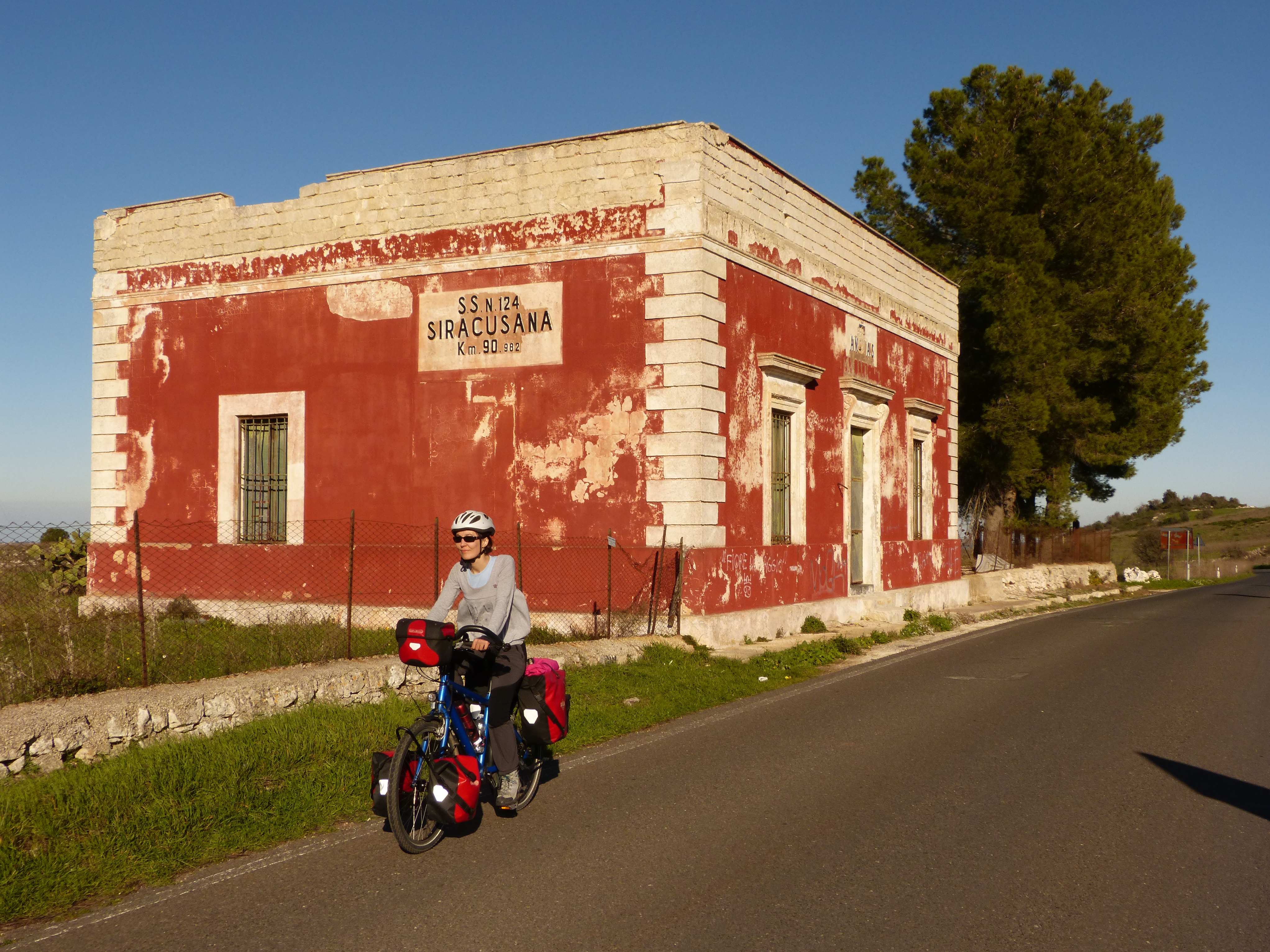
Seçil Öznur Yakan finds peace in the mountains
The co-founder of Turkey’s first touring bike shop and the ‘Women on Bicycle’ initiative, Seçil Öznur Yakan found peace in Kyrgyzstan
I grew up in İstanbul, studied and worked in an environment far from bicycles. When I was working as an engineer in factories, as you can imagine mostly outside the cities, I was spending my time in vehicles (metal boxes) and then in buildings (cement boxes).
The daily commutes in the cities have shaped my life as a woman and an activist, but the rides I love are the ones where I travel. Cycling around the Issyk Kul in Kyrgyzstan surrounded by the magnificent snow-capped mountains at 4000m was amazing. When I close my eyes, I still have the view and the feeling.

Thank you for reading 20 articles this month* Join now for unlimited access
Enjoy your first month for just £1 / $1 / €1
*Read 5 free articles per month without a subscription

Join now for unlimited access
Try first month for just £1 / $1 / €1
Isobel Duxfield is currently a freelance journalist and consultant on gender equal mobility for several public sector organisations. She previously worked in Brussels for a sustainable mobility network.
You must confirm your public display name before commenting
Please logout and then login again, you will then be prompted to enter your display name.
-
 Trek, State and Specialized raise bike prices while other brands limit US releases — Is this just the beginning?
Trek, State and Specialized raise bike prices while other brands limit US releases — Is this just the beginning?As tariffs hit, the bike industry is forced to adapt, whether through price increases, limited releases, or a restructuring of supply chains
By Anne-Marije Rook
-
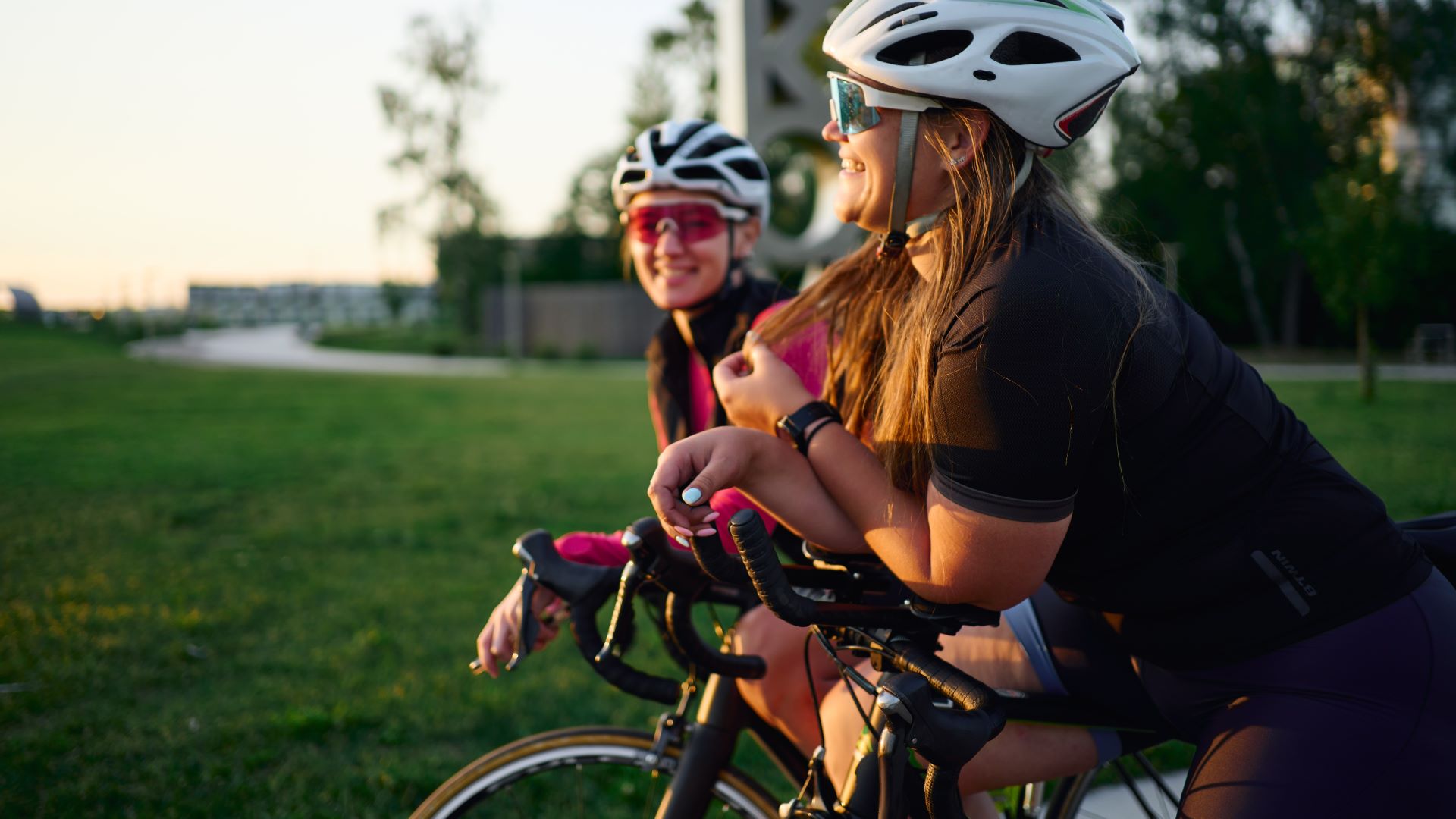 How I got my non-cyclist friend hooked on riding bikes — and how you can, too
How I got my non-cyclist friend hooked on riding bikes — and how you can, tooWith a little bit of gentle guidance, “bikes aren’t my thing” can turn into “when’s our next ride?”
By Marley Blonsky